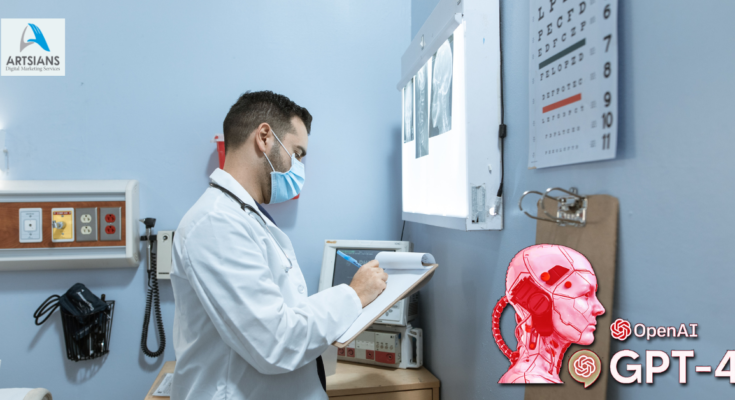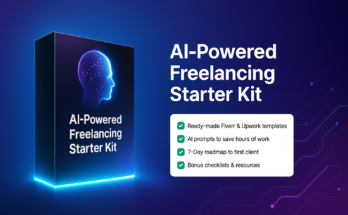In recent years, there has been a significant increase in the use of chatbots in various fields, including education. Chatbots have revolutionized the education industry by making education more accessible, personalized, and engaging. Among the different chatbots used in education, ChatGPT stands out as a powerful tool that offers many benefits to students. In this article, we will discuss how ChatGPT is making education more accessible and personalized.
Introduction to ChatGPT
ChatGPT is an AI-based chatbot that uses natural language processing (NLP) to understand human language and generate responses accordingly. ChatGPT is built on the GPT-3 architecture, which is one of the most advanced AI models available today. It is designed to provide personalized responses to user queries and simulate human-like conversation.
How is ChatGPT used in education?
ChatGPT has several use cases in education. It can be used to provide personalized learning experiences, assist teachers in grading and assessment, and provide support to students outside of the classroom. Some of the ways ChatGPT is used in education are:
Personalized learning experiences
ChatGPT can be used to provide personalized learning experiences to students. It can understand the learning style of a student and provide tailored content accordingly. For example, if a student is struggling with a particular concept, ChatGPT can provide additional resources to help them understand it better.
Grading and assessment
ChatGPT can assist teachers in grading and assessment. It can grade assignments and provide feedback to students. This can save teachers a lot of time and effort, enabling them to focus on other aspects of teaching.
Support outside of the classroom
ChatGPT can provide support to students outside of the classroom. It can answer their questions and provide them with additional resources to help them understand a concept better.
What are the benefits of ChatGPT for students?
ChatGPT offers several benefits to students, including:
Access to personalized learning
ChatGPT provides access to personalized learning experiences, which can help students learn more effectively. It can tailor content to the learning style of a student, making learning more engaging and effective.
Improved engagement
ChatGPT can improve student engagement by providing an interactive and personalized learning experience. It can simulate human-like conversation, making learning more interesting and engaging.
Faster feedback
ChatGPT can provide faster feedback to students, which can help them improve their performance. It can grade assignments and provide feedback almost instantly, allowing students to make corrections and improve their work.
Access to additional resources
ChatGPT can provide students with access to additional resources, such as videos and articles, to help them understand a concept better. This can enhance their learning experience and improve their understanding of a subject.
How chatbots impact education?
Chatbots have a significant impact on education. They can provide personalized learning experiences, improve engagement, and save teachers time and effort. Some of the ways chatbots impact education are:
Personalized learning experiences
Chatbots provide personalized learning experiences to students, which can help them learn more effectively. They can tailor content to the learning style of a student, making learning more engaging and effective.
Improved engagement
Chatbots can improve student engagement by providing an interactive and personalized learning experience. They can simulate human-like conversation, making learning more interesting and engaging.
Save teachers time and effort
Chatbots can save teachers time and effort by grading assignments, providing feedback, and answering student questions. This can enable teachers to focus on other aspects of teaching, such as lesson planning and curriculum development.
What is the positive impact of ChatGPT?
ChatGPT has a positive impact on education. It provides personalized learning experiences, improves engagement, and saves teachers time and effort. Additionally, ChatGPT can help to bridge the gap between students and teachers by providing students with support outside of the classroom. This can improve student performance and reduce the workload of teachers.
Why is chatbot good for students?
Chatbots are good for students because they provide personalized learning experiences, improve engagement, and offer support outside of the classroom. Chatbots can tailor content to the learning style of a student, making learning more engaging and effective. They can also grade assignments, provide feedback, and answer student questions almost instantly, providing students with faster feedback and support. Overall, chatbots can help to enhance the learning experience for students and improve their performance.
What are the impacts of ChatGPT?
The impacts of ChatGPT are significant. ChatGPT provides personalized learning experiences, improves engagement, and saves teachers time and effort. It can also provide support to students outside of the classroom, enabling them to improve their performance and understanding of a subject. Additionally, ChatGPT can help to bridge the gap between students and teachers, providing a more seamless learning experience. With the increasing use of AI in education, ChatGPT is a promising tool that can revolutionize the way students learn and teachers teach.
Conclusion
In conclusion, ChatGPT is making education more accessible and personalized by providing students with personalized learning experiences, improving engagement, and saving teachers time and effort. Chatbots, in general, have a significant impact on education by providing support to students outside of the classroom and improving the learning experience. As the education industry continues to evolve, ChatGPT and other AI-based tools will play a crucial role in shaping the future of education.
FAQs
- What is ChatGPT, and how does it work in education?
ChatGPT is a chatbot powered by artificial intelligence (AI) that uses natural language processing (NLP) to interact with users in a conversational manner.
It works by analyzing user input and generating responses based on its understanding of the context and the user’s needs.
In education, ChatGPT can be used to provide personalized learning experiences, offer support to students outside of the classroom.
help teachers grade assignments and provide feedback.
- How does ChatGPT provide personalized learning experiences to students?
ChatGPT can provide personalized learning experiences to students by analyzing their learning style and adapting the content to their needs.
It can also track their progress and provide feedback to help them improve their performance.
By providing a tailored learning experience, ChatGPT can help students learn more effectively and stay engaged in the learning process.
- What are the benefits of using ChatGPT in education?
The benefits of using ChatGPT in education are numerous.
It can save teachers time and effort by grading assignments and providing feedback.
It can also provide support to students outside of the classroom, improving their performance and understanding of a subject.
Additionally, ChatGPT can provide personalized learning experiences, making learning more engaging and effective.
- How can chatbots save teachers time and effort?
Chatbots can save teachers time and effort by automating tasks such as grading assignments and providing feedback.
This allows teachers to focus on more complex tasks such as lesson planning and classroom management.
By reducing the workload of teachers, chatbots can help to improve the quality of education and provide students with a better learning experience.
- What is the future of AI in education, and how will it impact students and teachers?
The future of AI in education is promising, with the potential to revolutionize the way students learn and teachers teach.
AI-based tools such as ChatGPT can provide personalized learning experiences, improve engagement, and save teachers time and effort.
Provide personalized feedback to students.
In the future, AI could be used to develop more intelligent tutoring systems, provide personalized feedback to students, and help teachers develop more effective teaching strategies.
Overall, ChatGPT is a powerful tool that has the potential to transform the education industry.
By providing personalized learning experiences, improving engagement, and saving teachers time and effort, ChatGPT can help to bridge.
The gap between students and teachers and provide a more seamless learning experience.



